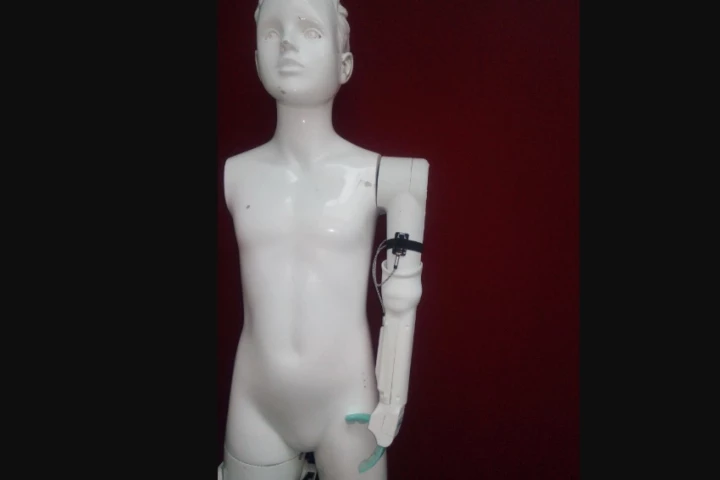University of Lincoln
-
A new study has explored how pheromones could lead to more harmonious relationships between cats and dogs, and found that a couple of currently available examples can have a calming effect for pairs of pets living in the same household.
-
Given that parents are already reluctant to buy fancy clothes that their tyke will soon outgrow, it follows that they would really question buying their amputee toddler a prosthetic arm. A new prosthesis, however, could prove to be quite inexpensive.
-
The more that farmers know about the exact state of their crops, the less they have to indiscriminately apply fertilizer, pesticide or even water. That's part of the thinking behind the Thorvald agricultural robotic platform, which is now being made into even more of a farmer's helper.
-
A new discovery has the potential to improve the diabetes screening process by giving a more complete picture of the disease. The team was able to identify the fifth and final molecule attacked by the immune system in Type 1 of the condition.
-
Scientists claim that coating health food ingredients such as vitamins and nutrients in nanofibers, created through a process called electrospinning, can serve to better protect them as they pass through the digestive system.
-
Scientists at the University of Lincoln have developed a tiny, low-cost autonomous robot that replicates the behavior of swarming honeybees and uses an obstacle detection system inspired by locusts.
-
A student team from the University of Lincoln in the UK has won a nationwide competition with the concept for an app/e-cigarette combo that gradually reduces the amount of nicotine dispensed. The e-cigarette is enabled with Bluetooth to connect with a mobile device.
-
This month, the public will get the chance to meet a robot at the Natural History Museum in London that is designed to learn about its surroundings and make it easier to work human environments.
-
Scientists from the School of Computer Science, University of Lincoln, UK are using expressive robot ERWIN (Emotional Robot with Intelligent Network) to study how long-term relationships may form between robots and humans.








